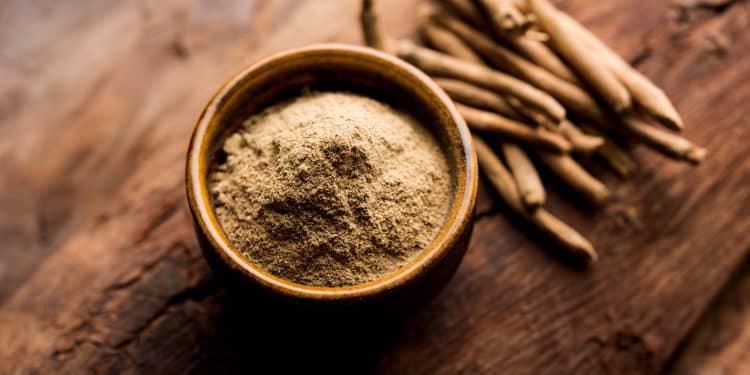So Does Ashwagandha Help With Arthritis?
Ashwagandha can help with symptoms of osteoarthritis. Studies show the many benefits of Ashwagandha including its anti-inflammatory, anti-arthritic, pain relief, and stress-relieving properties. Across studies in humans and animals, ashwagandha has also been shown to decrease pain in knee joints, decrease swelling, delay the degeneration of joints, and enhance the pain and overall mobility of osteoarthritic joints. It can thus support symptom control.
However, the majority of human studies that we reviewed used small sample sizes and were short-term. This means we need more studies to identify the long-term effects of Ashwagandha usage in osteoarthritis.
Osteoarthritis causes inflammation and pain in joints, most commonly in your hands, knees, and thighs. It is the most common form of arthritis, and a leading cause of disability around the world. According to the Centers for Disease Control and Prevention, over 32.5 million Americans are affected by osteoarthritis, and they experience swelling, stiffness, and decreased range of motion in affected joints.
Nonsteroidal anti-inflammatory drugs (NSAIDs) and opioids are commonly used for osteoarthritis, but can be expensive, may cause severe side effects to the intestine, and are not effective for everyone. So researchers keep exploring natural remedies that are safer and that support managing osteoarthritis symptoms without adverse side effects.
One such potential remedy is Ashwagandha (W. somnifera), an Ayurvedic herb used widely in Indian traditional medicine for the treatment of arthritis, painful swelling, ulcers, fever, eye complaints, diabetes, and a number of other ailments. This article explains the benefits and risks of taking ashwagandha for managing osteoarthritis.
Ashwagandha, also called Indian ginseng, winter cherry, and poison gooseberry, has been used for a vast array of conditions for over 3000 years in the Indian system of traditional medicine. In Ayurvedic medicine, it is considered a Rasayana herb, meaning that it is believed to rejuvenate the body and promote health of all tissues. Conventional medicine classifies it as an adaptogen, a naturally occurring botanical compound that can help the body adjust to stress and protect against harm.
Should you take ashwagandha for osteoarthritis?
Ashwagandha is usually safe to consume by humans. An 8-week trial including 80 healthy adults demonstrated that extracts from the ashwagandha root are safe for human consumption. Similarly, a study on humans in patients suffering from rheumatoid arthritis, another common form of arthritis, also showed ashwagandha powder to be safe. Ashwagandha is therefore a potential, natural, and safe therapy to manage osteoarthritis.
However, long-term studies are lacking, despite these promising findings. More information is needed regarding the drug-herb interactions of Ashwagandha with other common medications used for the treatment of osteoarthritis. It is best to speak to your health care provider before taking ashwagandha or other herbs for managing symptoms of osteoarthritis.
Tips to manage symptoms of arthritis
The treatment for symptoms of osteoarthritis includes a combination of therapies, such as physical therapy, safer physical activities that protect your joints, such as swimming or aqua-aerobics. As well as use of support devices, such as crutches or walkers, weight loss, if needed, and also surgery.
And last, but certainly not least, maintaining a diet that has anti-inflammatory potential Anti-inflammatory diets are high in antioxidants, polyphenols, and other immune-boosting compounds, which can potentially combat inflammation in the body. These include certain herbs, spices, fruits, vegetables, legumes, and whole grains. Research indicates that adhering to an anti-inflammatory diet, such as a Mediterranean-style diet, is associated with improved quality of life for osteoarthritis patients.
Ashwagandha and Knee Pain
Can Ashwagandha Help With Knee Pain? Yes, ashwagandha may be helpful for knee pain. In a 12-week trial of 60 participants suffering from knee pain and discomfort, ashwagandha plant root extract significantly reduced knee pain, stiffness, and disability, with benefits seen as early as 4 weeks.
Does Ashwagandha Help With Chronic Pain?.
The benefits of chronic pain relief (or analgesia) from ashwagandha are well established. In studies on mice, withaferin A, a major active compound found in the root extracts of ashwagandha, improved pain after surgery as well as chronic pain associated with neurological injuries. Similarly, use of ashwagandha leaves in the clinical trial of 42 patients reviewed suggests ashwagandha blocks pain receptors in the brain, which may decrease pain and disability from osteoarthritis.
Does ashwagandha help with joint pain?
Ashwagandha extract dramatically decreased activity of collagenase, an enzyme that breaks down joint cartilage, in studies using mice. Other studies have shown the promise of ashwagandha for treating rheumatoid arthritis, and it can even improve joint pain for those suffering from viral infections such as Chikungunya. These findings suggest that ashwagandha might be helpful for relieving certain joint complaints, but more studies on humans are needed to know for sure. Osteoarthritis is a common form of arthritis that causes inflammation and joint pain, and it affects over 32.5 million Americans.
It is typically treated with non-steroidal anti-inflammatory drugs and opioids, but they are not without their own severe side effects. Ashwagandha is a natural alternative, which has been proven to be safe for human use. It can decrease the degeneration of joints, pain, and swelling, and can help to increase the mobility of joints for those living with osteoarthritis. Although Ashwagandha is considered safe for most people, make sure you speak to your health care provider before trying it for the first time.















